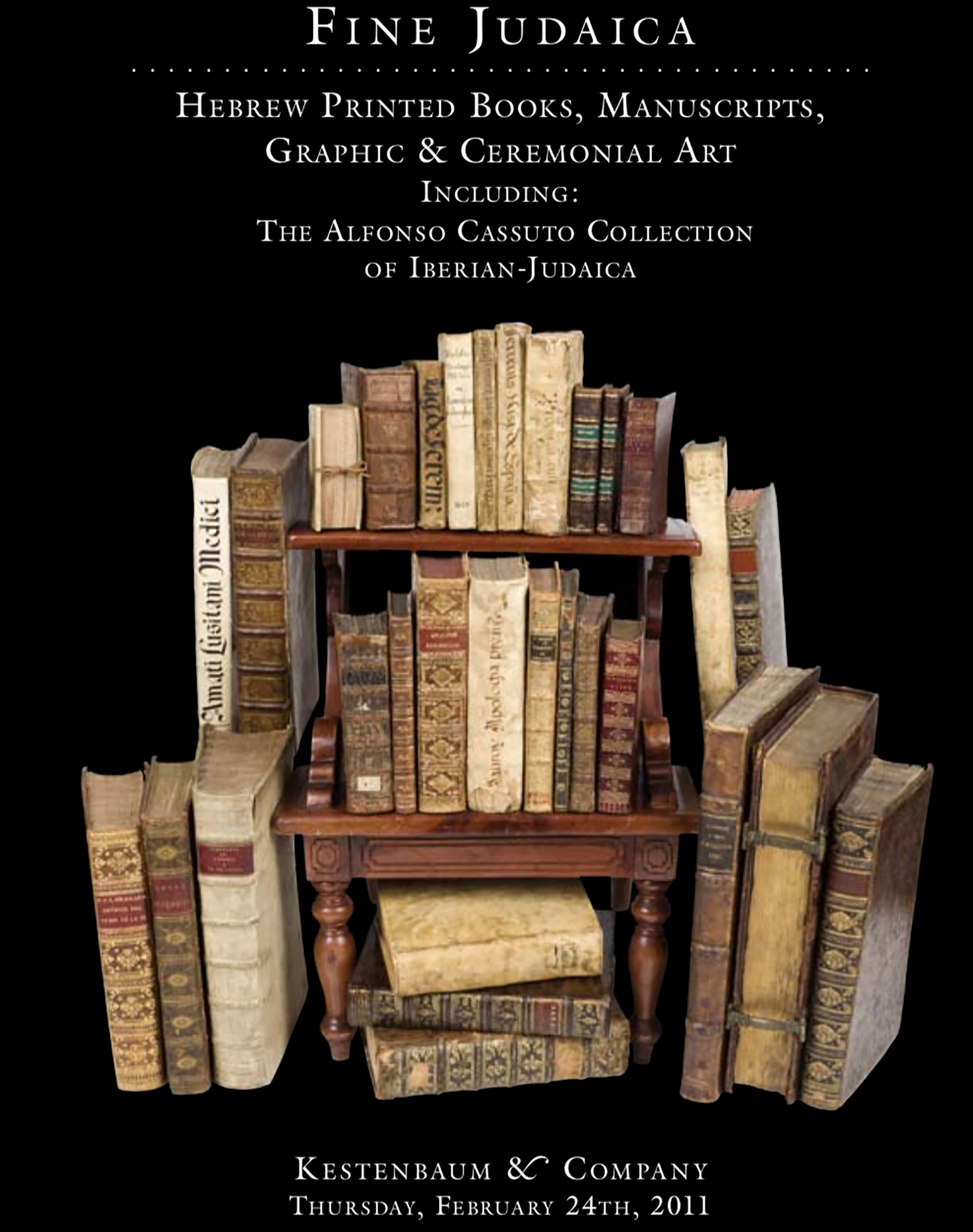WESSELY, NAPHTALI HERZ (HARTWIG).

AUCTION 50 |
Thursday, February 24th,
2011 at 1:00
Fine Judaica: Hebrew Printed Books, Manuscripts, Graphic & Ceremonial Art Including: The Alfonso Cassuto Collection of Iberian Art
Lot 209
WESSELY, NAPHTALI HERZ (HARTWIG).
Berlin: The Chinuch Ne’arim Press 1782-1785
Est: $600 - $900
PRICE REALIZED $1,300
FIRST HEBREW WORK ON JEWISH EDUCATION IN THE SPIRIT OF THE HASKALAH.
The Act of Tolerance of 1782 required Jews to establish trade-schools, with German as the language of instruction. Wessely felt this innovation would be greatly beneficial, arguing in his Divrei Shalom Ve’emeth that Jewish education should include studies in “human knowledge” that incorporates the totality of secular culture, especially the moral, mathematical and physical sciences. According to Wessely, such general education necessarily preceeds religious instruction as it is not possible to understand Divine teachings without secular acculturation. Wessely concludes that he who studies the Torah without acquiring common secular knowledge is a burden upon society. Wessley’s pamphlet met with opposition among traditionalist Rabbis. They regarded the Act of Tolerance with scepticism, fearing its implementation would promote assimilation. They considered it outrageous that at such a critical juncture, a fellow Jew would not only urge the unqualified application of the Acts' measures but additionally assail the prevalent system of Jewish religious education. Among the rabbis who opposed Wessely were the Gaon of Vilna, Ezekiel Landau of Prague (who pronounced a ban on Wessely’s writings), Tevele Katz Schiff of London, David Tevele of Lissa, Solomon Dov Baer of Glogau and Joseph ben Pinchas of Posen. Indeed, Chief Rabbi Hirschel Levin sought to evict Wessely from Berlin, but for Moses Mendelssohn's intervention.
Wessely responded to his opponents from Poland in the epistle Eyn Mishpat in which he collected the opinions of the Italian rabbis who endorsed his views on Jewish education. In Rav Tov LeBeith Yisrael, he responded to the questions put to him by the rabbis of Trieste. Wessely restated his arguments and defended the new education program he had proposed in Divrei Shalom Ve’Emeth and in his Rechovoth.
See M. Carmilly-Weinberger, Censorship and Freedom of Expression in Jewish History (1977) pp. 111-13; A. Altmann, Moses Mendelssohn, A Biographical Study(1973) pp. 476-86; S. Flatto, The Kabbalistic Culture of Eighteenth-Century Prague: Ezekiel Landau and His Contemporaries (2010) pp. 75-9
